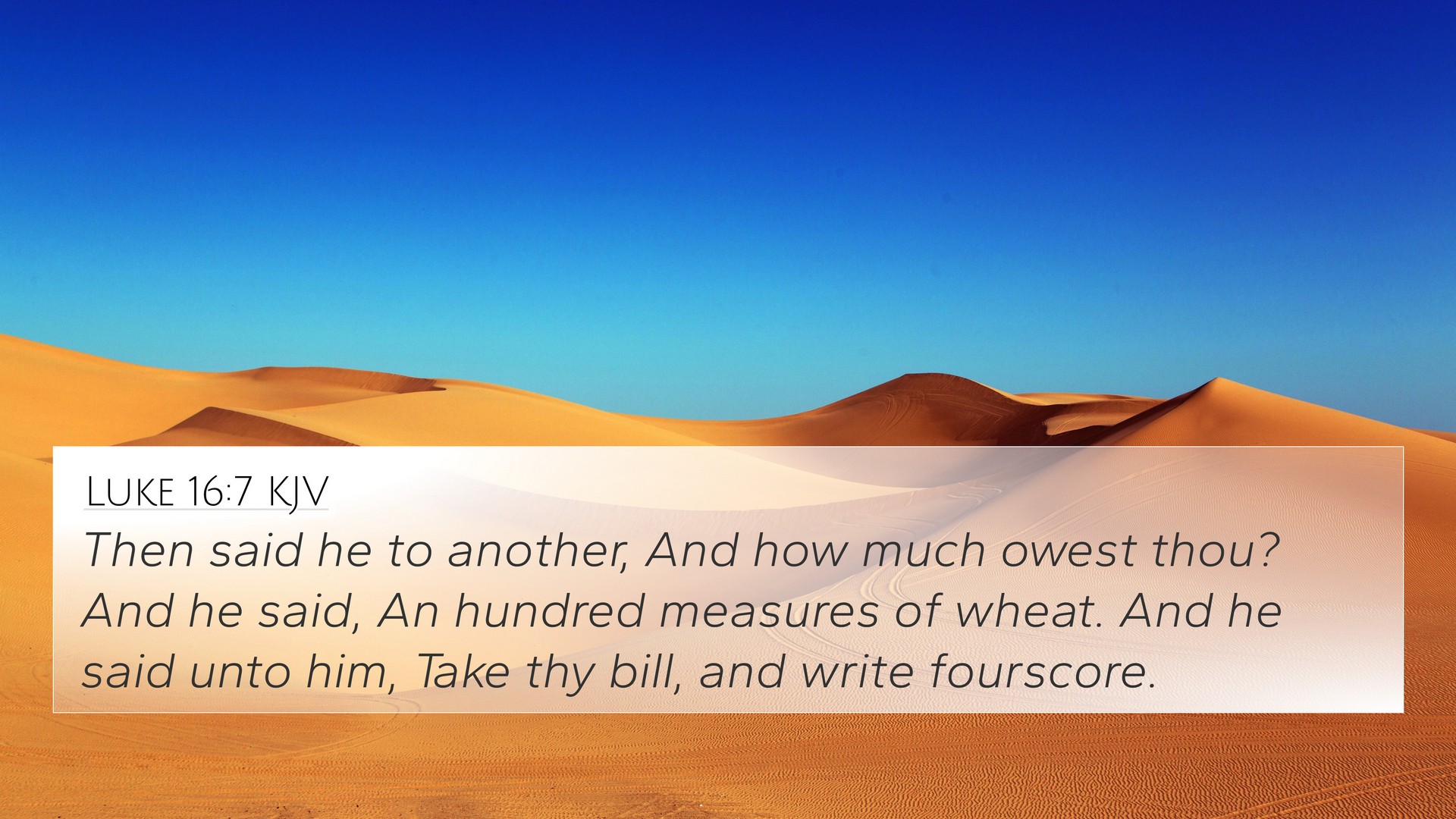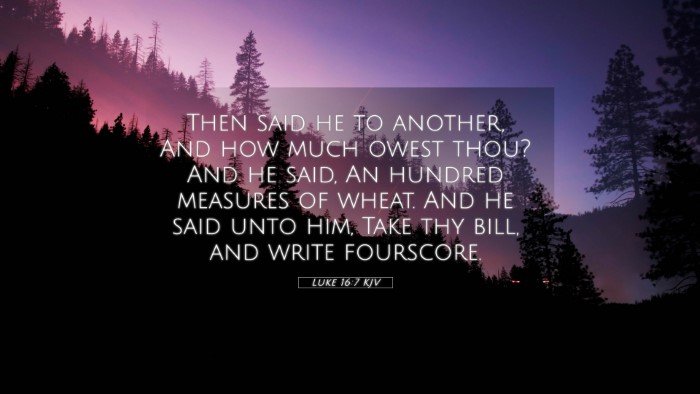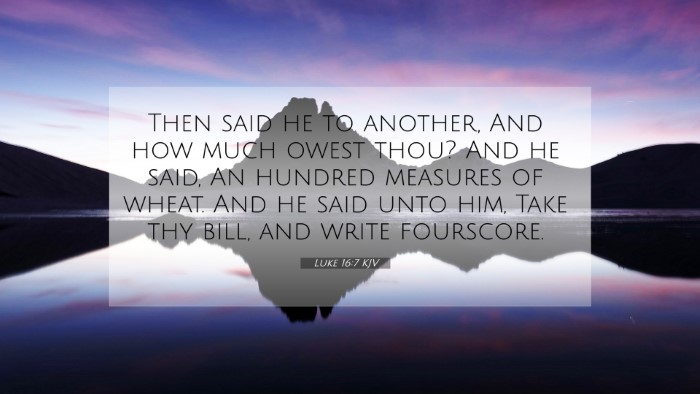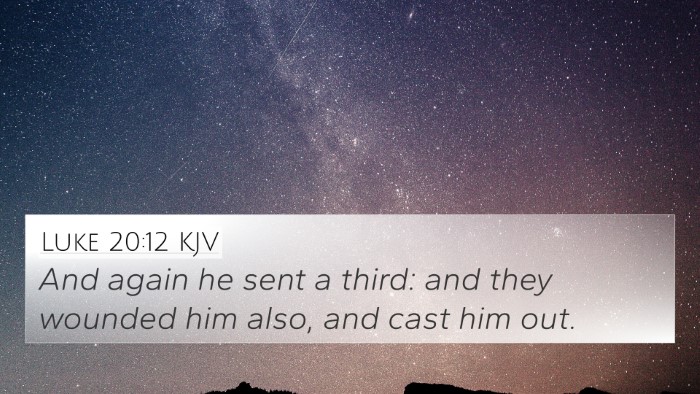Old Testament
Genesis Exodus Leviticus Numbers Deuteronomy Joshua Judges Ruth 1 Samuel 2 Samuel 1 Kings 2 Kings 1 Chronicles 2 Chronicles Ezra Nehemiah Esther Job Psalms Proverbs Ecclesiastes Song of Solomon Isaiah Jeremiah Lamentations Ezekiel Daniel Hosea Joel Amos Obadiah Jonah Micah Nahum Habakkuk Zephaniah Haggai Zechariah MalachiVerse
Luke 16:1 Luke 16:2 Luke 16:3 Luke 16:4 Luke 16:5 Luke 16:6 Luke 16:7 Luke 16:8 Luke 16:9 Luke 16:10 Luke 16:11 Luke 16:12 Luke 16:13 Luke 16:14 Luke 16:15 Luke 16:16 Luke 16:17 Luke 16:18 Luke 16:19 Luke 16:20 Luke 16:21 Luke 16:22 Luke 16:23 Luke 16:24 Luke 16:25 Luke 16:26 Luke 16:27 Luke 16:28 Luke 16:29 Luke 16:30 Luke 16:31




